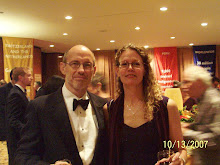The Grand flaw in the UN
This week UN Secretary General Ban Ki-moon urged members States to recommit to “collective security” and human rights. He claimed the UN prevented another war but those who suffered from the lethal consequences of the Cold War or the current violence and loss of human rights as a result of an ongoing and predictably endless global war on terrorism might disagree.
Peace, or the absence of war, particularly a nuclear war, was the original motivation for the creation of the UN. But it’s increasingly clear to those who deal with threats to individual and national security, and others concerned about human rights and the environment, that effectively protecting human security, national security and the environment will require more than just “peace”.
What the vast majority of ‘we the people’ of the world really want is security without the loss of the freedom, and the prosperity that comes from maximizing both freedom and security. Threats like Ebola, Climate Change, violent extremism and WMD proliferation in a world where the rights of nations remain superior to the rights of ‘we the people’, will never see nations, people or economies free from threats and violations of the most fundamental of human rights -- the right to life, liberty and the pursuit of happiness.
Encouragingly, the UN Secretary General specifically stated that UN Member States needed to fortify a sense of unity on the meaning of the term ‘collective security’, which he stressed was the core purpose of the Organization. He also noted that Nation States have been falling short of their responsibility to prevent conflict, something the UN Charter is very clear on. What he didn’t mention was the grand flaw of the UN’s original design of giving sovereign equality to all member states with absolutely no means of enforcing that equality, short of war, or sanctions -- which can be more deadly than war. And, worse yet, the universal protection of human rights is only an afterthought. A grand gesture with absolutely no muscle other than words (in the Universal Declaration of Human Rights), accusations (frequent UN reports), powerless courts (ICC and ICJ) and noble promises (R2P).
There should be no doubt that violations of human rights eventually weaken state sovereignty and national security. But not a single organization in the world is actively demanding or even offering solutions to resolve this grand flaw. If anyone is looking for such solutions a new book lists them along with detailing rational means for achieving them. The book is titled “Transforming the United Nations System” written by Jopeph E. Schwartzberg and endorsed by former UN Secretary General as “an essential reference work for all…concerned…”.Ban states “In today’s world, the less sovereignty is viewed as a wall or a shield, the better our prospects will be for protecting people and solving our shared problems…” But, in fact, it is the belief that national sovereignty is the key to protecting national security and human rights that is the grand flaw in the current UN system.
Human rights abuses kill, maim, and displace people, divide communities, undermine economies and destroy cultural heritage. Ban called for “a conceptual shift” in international understanding of UN human rights action in order to transform the Security Council’s role in peace and security. Yet no organization today boldly takes the stand in support of such needed transformation.
Ban said “We must ask whether, for example, earlier efforts to address human rights violations and political grievances in Syria could have kept the situation from escalating so horrendously,” He went on to say “We must be willing to act before situations deteriorate. This is both a moral responsibility and critical for the maintenance of international peace and security. We cannot afford to be indifferent.” Anyone adding up just the economic costs of our indifference would have to agree.
Noting that the distinctions between national and international were beginning to disappear, Mr. Ban cited commerce, communication, public health and climate change as areas of transnational concern. Terrorism and extremism were also serious issues and he highlighted the need to respond decisively, and to combat extremism without multiplying the problem and with full respect for human rights. What he was saying without actually saying it is ‘we need enforceable international laws’ (ie. the ‘force of law’ instead of the ‘law of force’ for dealing with our individual, religious and national differences.
Regarding many other important issues of international concern, the UN’s 70th anniversary should serve as a chance to seriously reflect on nation states’ common enterprise and to take transformative actions like those detailed in Mr. Schwartzberg’s book.
And high on any list should be the newest, laudable, affordable and achievable goals soon to be affirmed for sustainable development and climate change. But we must recognize that any hope of actually achieving these vital goals will require three fundamental tactics.


0 Comments:
Post a Comment
<< Home